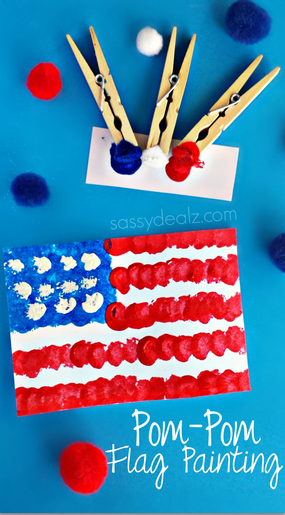National family dinner night is September 22, 2014!
Sports practices, PTA meetings, late nights at the office -- with multiple schedules to juggle, many families find it difficult to sit down together for dinner. It may not seem significant, but eating together as a family can give your child an advantage in many areas. Before you head to the drive-thru or sit in front of the TV for your next meal, consider the impact of sharing a meal with your kids. Studies show that the following are benefits found with only 3 meals shared as a family each week:
1. Improvement in Healthy Eating
2. Curb in Risky Behavior
3. Improved Academic Achievement
4. Strengthened Family Relation-ships
www.livestrong.com
Thursday, September 11, 2014
Friday, August 29, 2014
Learn a new language!
Have you thought about learning another language, or encouraging your child to learn one? It can be a truly enriching experience. Some reasons to learn a new language include:
1. To converse with friends and family that speak a different language.
2. To understand music, movies, and TV shows in another language.
3. To gain skills for a job.
4. To become smarter!
5. To ace a class in school.
One of the best websites I know of for learning a second (or third or forth) language is duolingo.com, which is absolutely free. Currently you can take courses in Spanish, French, German, Italian, Portuguese, Dutch, Danish, Hungarian, Swedish, Turkish, Russian, Polish, and Romanian.
Check it out!
1. To converse with friends and family that speak a different language.
2. To understand music, movies, and TV shows in another language.
3. To gain skills for a job.
4. To become smarter!
5. To ace a class in school.
One of the best websites I know of for learning a second (or third or forth) language is duolingo.com, which is absolutely free. Currently you can take courses in Spanish, French, German, Italian, Portuguese, Dutch, Danish, Hungarian, Swedish, Turkish, Russian, Polish, and Romanian.
Check it out!
Thursday, August 21, 2014
Online Learning for Kids and Adults
Does anyone in your family have a desire to learn from home on your computer? There is a pretty awesome website called Khan Academy where you can learn (for free) a world of information in different subjects like math, science, arts and humanities, test prep, even computer programming.
From Wikipedia: Khan Academy is a non-profit educational organization created in 2006 by educator Salman Khan to provide "a free, world-class education for anyone, anywhere."
Here at BHF we use the website specifically for math tutoring, and the results have been excellent.
Children of all ages can benefit from the wide variety of math lessons offered, from basic to complex problem-solving. Twenty minutes of study a day can go a long ways toward improving skills and staying ahead in school.
Adults with some free time may also be interested. Perhaps now is the perfect time to take art history basics from the comfort of your couch.
Check it out at khanacademy.org.
From Wikipedia: Khan Academy is a non-profit educational organization created in 2006 by educator Salman Khan to provide "a free, world-class education for anyone, anywhere."
Here at BHF we use the website specifically for math tutoring, and the results have been excellent.
Children of all ages can benefit from the wide variety of math lessons offered, from basic to complex problem-solving. Twenty minutes of study a day can go a long ways toward improving skills and staying ahead in school.
Adults with some free time may also be interested. Perhaps now is the perfect time to take art history basics from the comfort of your couch.
Check it out at khanacademy.org.
Thursday, August 14, 2014
Late Summer a Good Time for Paper Airplanes
Are you about out of ideas for summer crafts? Perhaps your summer travels have come to an end, and you find yourself back at home with your child as they prepare to go back to school. Just because summer vacation is wrapping up doesn't mean the fun has to!
One very simple activity you can work on with your child is making a paper airplane. It's simple and yet can provide hours of entertainment. Which design flies the farthest, the fastest, and can it do tricks?
You could fill a bucket with paper airplanes and drop them from a height just to watch the mayhem that ensues.
This helpul wikiHow article outlines several methods for making a paper airplane, and includes links to more complicated designs, like ones that do loop de loops. Enjoy!
One very simple activity you can work on with your child is making a paper airplane. It's simple and yet can provide hours of entertainment. Which design flies the farthest, the fastest, and can it do tricks?
You could fill a bucket with paper airplanes and drop them from a height just to watch the mayhem that ensues.
This helpul wikiHow article outlines several methods for making a paper airplane, and includes links to more complicated designs, like ones that do loop de loops. Enjoy!
Thursday, August 7, 2014
12 Clever Tricks to Regain Your Cool Quickly
Have you ever lost your cool around your child and felt bad about it later? If someone in your family is acting out, it seems all too easy to become upset and resort to anger and shouting. Keeping calm is important in such situations. If we can respond reasonably in the heat of the moment, positive outcomes are much more likely.
Here are 12 tricks that can help you keep your cool:
1. Breathe in, tense, and release your muscles as you exhale.
2. Roll your shoulders.
3. Squeeze something.
4. Suck on something sweet.
5. Chew gum.
6. Say how you feel, using "I" statements instead of "you" statements.
7. Find a pressure point.
8. Talk low. Talk slow.
9. Drink a glass of water.
10. Smile.
11. Turn the lights down.
12. Walk away.
These techniques are explained by Dr. Cameron Caswell in much greater detail in the article at this website, so check it out!
Here are 12 tricks that can help you keep your cool:
1. Breathe in, tense, and release your muscles as you exhale.
2. Roll your shoulders.
3. Squeeze something.
4. Suck on something sweet.
5. Chew gum.
6. Say how you feel, using "I" statements instead of "you" statements.
7. Find a pressure point.
8. Talk low. Talk slow.
9. Drink a glass of water.
10. Smile.
11. Turn the lights down.
12. Walk away.
These techniques are explained by Dr. Cameron Caswell in much greater detail in the article at this website, so check it out!
Thursday, July 31, 2014
Kindermusik in the Car
Do you like music? Do you like to listen to music with your kids? How about in the car where we so often find ourselves?
From Kindermusik:
How many hours do children spend with their families in transit? A lot! The average American spends 2.5 hours per week or 130 hours per year in the car. Imagine using that time to benefit our students.Visit the following link to receive a code for 5 free songs from kindermusik.com. There is also a PDF with 10 fun musical learning activities to give you helpful ideas for those car rides.
A recent research study proves the family car is an excellent space for fostering musical development and family togetherness.
Thursday, July 24, 2014
How to get your kids excited about walking
Walking is an excellent form of exercise that has
significant health benefits, and can be enjoyed at almost any age. But getting kids excited for a walk is
another story of course. What are some
ways parents can convince a child to tear themselves away from the latest video
game and enjoy some time outdoors?
First, don’t call it a walk!
Don’t ask “Shall we go for a walk?” Say, “Who wants to explore the
forest?”
Also, children love places with lots to look at and things
to clamber over: dunes, trees, streams, beaches.
Another idea is to give your child a cheap camera and get
them interested in two things at once, photography and outdoor exploration.
For more helpful ideas that can get kids excited to be
outdoors and moving, visit the following website:
Thursday, July 17, 2014
Quiz: What's Your Discipline Style?
We all know that proper discipline is very important in a
child's upbringing. But what amount is
best, and what kind? Take a fun and helpful quiz at parents.com to learn more.
Here are a few helpful pointers for encouraging better
behavior in your kids:
·
Let them help. Little kids are more likely to be
cooperative when they feel as if they're part of the game. If your toddler is
underfoot while you're preparing dinner, have him fold some napkins and place
them on the table.
·
Foster empathy. A child who understands that
others have feelings similar to his own will learn to treat people the way he
wants to be treated. If a sibling has a cold, you could say, "Emily feels
bad because she has a cold. What can we do to make her feel better?"
·
Be kind. Kids copy everything you do, and they
want to be just like you. Small acts of kindness -- an extra smile for the
mailman, or holding the door for someone -- will inspire your child to do the
same.
Sunday, July 6, 2014
Monday, June 30, 2014
Easy 4th of July Crafts
Why not spend sometime this week getting ready for the 4th?!?!? Get the family together and try one of these quick and easy crafts that celebrate the Red, White and Blue.
1. Pom-Pom Flag Painting
2. Toilet Paper Roll Fire Work Stamp
1. Pom-Pom Flag Painting
2. Toilet Paper Roll Fire Work Stamp
3. Fireworks Straw Paintings
Tuesday, June 24, 2014
Changing Brains: Helping Your Child Grow
What can you do to help your child's brain develop to its full potential? That is one of the question that scientists at the University of Oregon are working to answer with the Changing Brains project. Their website provides great resources for parents on the brain development of children, including a great series of videos focusing on different areas of the brain. Not only does each video include interesting and important information about development, but provides tools and strategies to maximize your child's brain growth in that area! Visit their site and click on the "watch" tab to start learning more about your child's amazing mind.
http://www.changingbrains.org/index.html
Sunday, June 15, 2014
Oregon Ag in the Classroom: A Great Resource for Everyone!
Looking for an activity for a summer day? Want to get your kids off the couch and excited about learning? Although designed for classroom support, Oregon Ag in the Classroom is a great resources for families during the summer months. Filled with activity ideas focused on Oregon's unique wildlife, industry and natural resources, the website has links to fun, educational projects and lessons for kids from preschool to high school! Visit the site and begin exploring Oregon from the comfort of your home today!
http://aitc.oregonstate.edu/teachers/handson.htm
http://aitc.oregonstate.edu/teachers/handson.htm
Sunday, June 8, 2014
Do Your Kids Seem to Behave Better for Everyone Else?!?!
BHF Staff recently attended a state-wide Parent Educator Summit and heard from the "Parenting Doctor," Ann Corwin, about why our children often misbehave at home, yet are angels for others. Here is what she had to say.....
"Most parents believe and say, “My kids know how to push
my buttons to manipulate me and that is why they don’t behave for me”! I
also hear well-meaning, grandmothers/fathers, mother-in-laws and
neighbors reinforce this notion by saying, “He never does that at my
house”! This implies of course that the parents are responsible for the
child’s inappropriate behavior.
Believe it or not this is not why kids behave
inappropriately with their parents and not with others. It’s because
their parents unconditionally love them and that makes kids feel safe
enough to misbehave. In other words, they feel comfortable enough and
are sure enough in the love of their parents to experiment with
different behaviors. They know that their parents won’t ever leave
them, no matter how troubling their behavior might be.
So parents, have faith the next time your kids seem out
of control with you, that you are doing something right and that is
allowing your kids to try out different ways of communicating to see how
you will react.
Remember when your kids behave appropriately be there to
let them know that by telling them you like the way they are talking to
you, following the family rules and or treating you and others. And
when they pick other, not so appropriate ways to behave, make sure they
see you respond to them in a different way. This will help your kids
begin to tell the difference between what they get from their parent
when they behave in different ways.
For kids, life is all about learning how healthy
relationships work by trying out different ways to behave. So, instead
of looking for ways to get your kids to stop misbehaving look for ways
to teach them what they can do to create a healthy relationship with
you, their parent, who they love & adore, Dr. Ann
Monday, June 2, 2014
Help Fight Summer Learning Loss
The staff at BHF will be working with diligence this summer to communicate with children, families and our communities the importance of keeping brains and bodies active during the summer months! While summer learning loss plagues all children, its largest impacts are seen in our most vulnerable children. Check out the informational poster below. Created by the National Summer Learning Association, its a great introduction to this critical issue.
Wednesday, May 28, 2014
Understanding Natural Consequences
Natural consequences provide a parenting tool that can be extremely effective. The folks at Positive Discipline explain how they work in a recent blog post:

A natural consequence is anything
that happens naturally, with no adult interference. When you stand in the rain,
you get wet. When you don’t eat, you get hungry. When you forget your coat, you
get cold. No piggy backing allowed. Adults piggy back when they lecture, scold,
say, "I told you so," or do anything that adds more blame, shame, or
pain than the child might experience naturally from the experience.
Children usually feel bad or guilty when they make a mistake. Piggy backing lessens the learning that can occur from experiencing a natural consequence because the child stops processing the experience and focuses on absorbing or defending against the blame, shame, and pain. Instead of piggy backing, show empathy and understanding for what the child is experiencing: "I’ll bet it was hard to go hungry (get wet, get that bad grade, lose your bicycle)." When it seems appropriate, you could add, "I love you and have faith in you to handle this." It can be difficult for parents to be supportive without rescuing or overprotecting, but it is one of the most encouraging things you can do to help your children develop a sense of capability
Children usually feel bad or guilty when they make a mistake. Piggy backing lessens the learning that can occur from experiencing a natural consequence because the child stops processing the experience and focuses on absorbing or defending against the blame, shame, and pain. Instead of piggy backing, show empathy and understanding for what the child is experiencing: "I’ll bet it was hard to go hungry (get wet, get that bad grade, lose your bicycle)." When it seems appropriate, you could add, "I love you and have faith in you to handle this." It can be difficult for parents to be supportive without rescuing or overprotecting, but it is one of the most encouraging things you can do to help your children develop a sense of capability
- See more at:
http://blog.positivediscipline.com/#sthash.wdpMB3Cn.dpuf
Subscribe to:
Posts (Atom)















